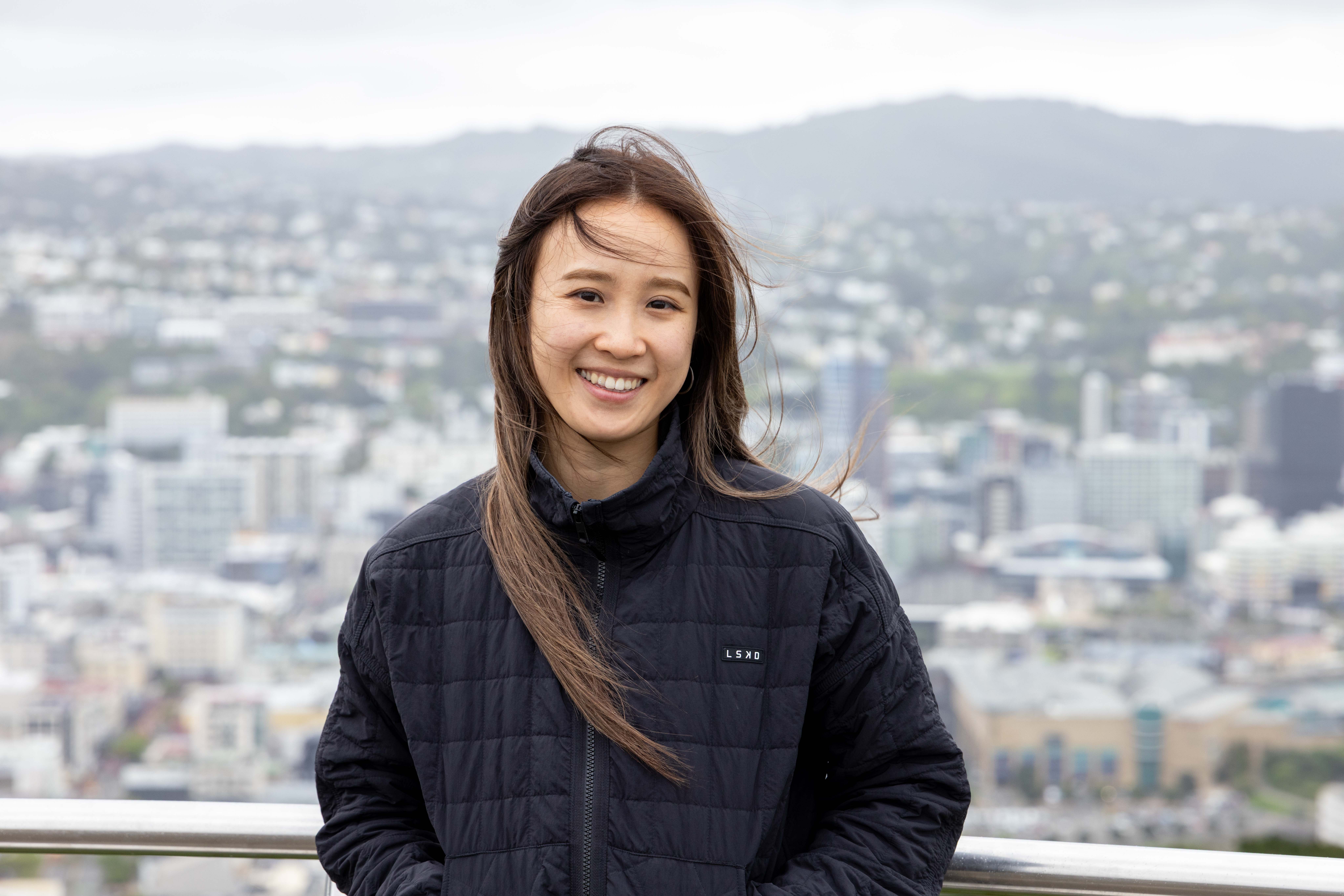Veronica’s story
‘My friends helped me recover’
Contemporary dancer Veronica ChengEn Lyu suffered an ill-timed injury, but with a supportive employer and strong social connections, she was able to get back on stage as soon as she could.

Video transcript for Veronica’s story
The last thing Veronica ChengEn Lyu wanted after moving to a new city was to be off her feet and stuck in her apartment for weeks.
Having recently arrived in Wellington to take up a new job, Veronica was looking forward to exploring the capital and making friends.
“I was so excited to just explore everything, get to know people, build connections and start a new chapter here,” she says.
Veronica at rehearsal - Footnote New Zealand Dance
“I was really looking forward to going to the top of Mount Victoria and walking along the south coast, I wanted to make the most of all the beautiful places.”
But those plans were soon thrown up into the air.
A new recruit for Footnote New Zealand Dance, Veronica was performing in a show in Christchurch when disaster struck.
“I was doing a jump and landed on the other dancer’s shoes,” she says of the painful moment that gave her a badly sprained ankle.
“I forced myself to finish the show but I could feel pain all down my leg. Basically, my whole right leg couldn’t function.”
Veronica travelled back to Wellington on crutches before Footnote helped connect her to a physio and receive support from ACC.
"The physio gave me a lot of help in terms of how specific the exercises were that I needed to do and she also helped me to analyse what kind of mobility I could do and how much", she says.
Staying connected to work
Veronica worked closely with her employer on a recovery at work plan, which allowed her to stay connected to her colleagues and continue having a sense of purpose.
“Footnote were great in looking after me,” she says.
“They helped me out and it was lucky because we weren’t in a busy creation period, we were in more of a teaching season, where we’d teach dance at a lot of schools and workshops. That allowed me to take my time and just jump in and out of my role, which was nice.”
With such an active job and an eagerness to get back to full fitness to enjoy her new life in a different city, Veronica was very proactive in her rehabilitation.
She took on board the advice of her physio to stay mobile and work hard at her exercises, rather than resting completely.
“I’ve always been an active person and I love moving. That’s something that always drives me, so I never thought of stopping being active,” she says.
“I wasn’t very patient about it, I was quite impatient. I really wanted to get back to moving full range again, so I always had this urge to push myself a bit more and I think that helped me to stay positive. It was good to have goals and keep working towards them.”
Friends boost mood in tough times
Despite that positive attitude, Veronica did find her recovery challenging at times, particularly in the early days when she was largely confined to her apartment.
“It was a nightmare at the start,” she says.
“I’d been preparing for a show season so my body was in a very physical mode, strength and stamina-wise. And then, out of nowhere, I’m lying in bed and can barely even more, with bruises all over my leg.
“It took time to get my mind back on the reality, to get back in the moment and tell myself to calm down and accept the injury.”
During those days of despair, staying socially connected made a big difference.
“I was keeping in touch with my family overseas in China, my friends in Auckland and also my new friends in Wellington,” she says.
“I was stuck in my apartment for the first couple of weeks because I couldn’t walk downstairs. So it really helped to have friends and flatmates who could help me out with groceries or deliver other things.
“And it was nice just to have their voices around, knowing everyone’s here for me. They were really encouraging, saying things like, ‘Oh, we can’t wait to have you back in the studio.’ I felt very loved and it gave me hope to get out of the apartment and do things with them again.”
Achieving goals by being proactive
It took 12 weeks for Veronica to recover fully.
But she knows it might have been much longer had she not been so proactive with her rehab, as well as being well supported by her employer and enjoying the benefits of a strong social network.
“As a dancer, I’m used to working towards goals because it’s something we do from a young age,” she says.
“I felt really motivated to be able to go back to the studio, get back to dancing again and just having the chance to climb up the mountain and explore the city.
“I’m grateful to have come through the recovery and to be enjoying my life again.”
Getting back to what matters, sooner
When trying to recover from a sprain or strain, research shows rest isn’t always best. Gentle movement can be beneficial and help in your recovery, as Veronica found out.
Staying connected to members of your community, whānau and friends can also help you recover, while engaging in a recovery at work plan keeps you connected with your team and provides a sense of purpose.
By staying active, socially connected and doing alternative duties at work, as well as following medical rehabilitation advice, you can recover more quickly and get back to what matters, sooner.
